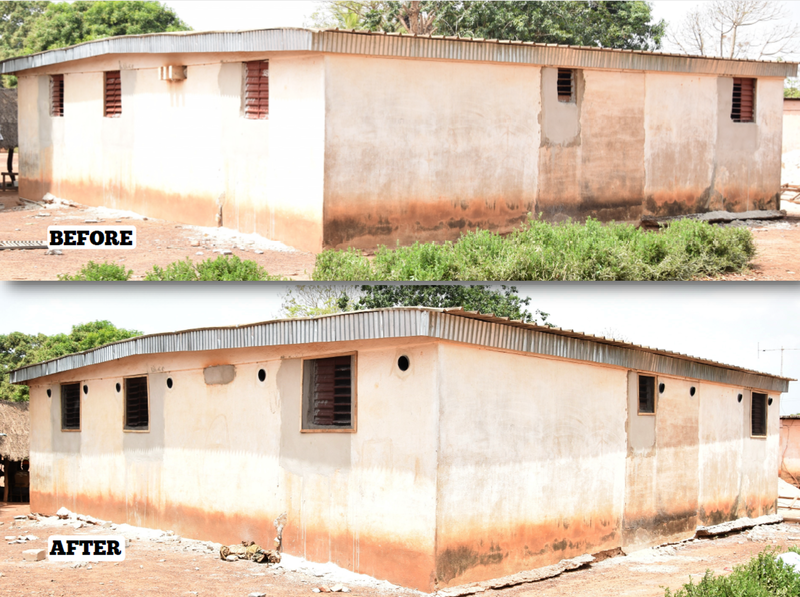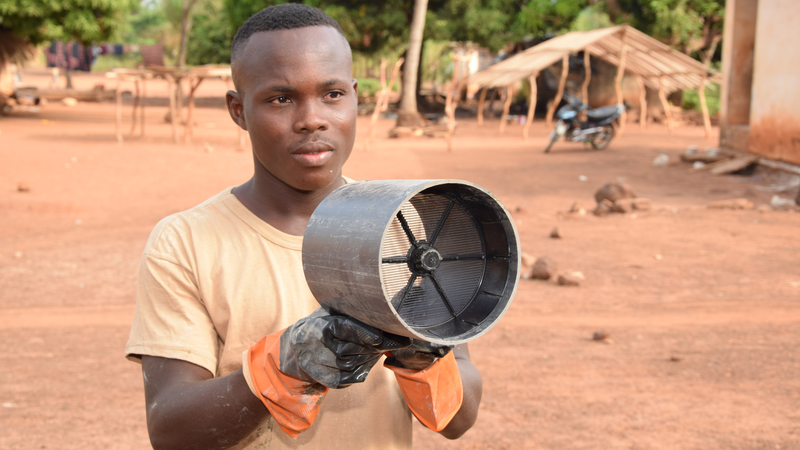In Côte d’Ivoire, and many other countries, malaria poses a major threat to farming communities. With over 7.3 million cases reported in 2021 alone (WHO, 2023), the disease not only causes havoc in community health but also inflicts economic and social harm that keeps families in poverty. When farmers or family members fall ill, it immediately impacts the labour capacity. This may again lead to decreased crop production and therefore income. At the same time children may face consequences too by interrupting or worse ending their schooling to support family activities. Women tend to bear the additional burden on top of their existing daily cores by looking after sick family members.
Things will worsen if the patient must see a doctor, go to a hospital, utilizing their savings on medical expenses or, worst case scenario, passes away. Funerals form a disproportionate financial burden on these rural families.
„With over 7.3 million cases reported in 2021 alone, malaria not only causes havoc in community health but also inflicts economic and social harm that keeps families in poverty.” WHO (2023)
The Hidden Cost of Malaria in Farming Communities
With an incidence rate of 270.8 cases per 1,000 people, and even higher rates among children under 5 years old (594 cases per 1,000) (WHO, 2023) malaria is a factor that keeps farming families trapped in poverty. This lost productivity creates a ripple effect of economic and social vulnerability, making it difficult for families to pay for essential services like education and (preventive) health.

FarmStrong Foundation (FSF) is part of a malaria vector control consortium which implemented a vector control program around Bouaké, installing Eave Tubes in farmers’ houses. This innovative vector control system is responsible for a significant decline in the mosquito population.
Since 2017, FSF installed 30,000 Eave Tubes in 3,500 houses in 20 villages. In 2024, FSF advanced the initiative by retreating 29,269 Eave Tube discs across 20 villages in the region.
A farmer’s house before and after the installation.
The intervention combines several characteristics:
- One-time tube installation with low-cost, recyclable inserts
- Protects entire households against mosquitoes
- Eliminates even resistant mosquitoes
- The devices are beyond the reach of people (no contact)
These specially designed tubes with insecticide treated mosquito traps are placed just under the roof sealing, the place where mosquitoes are entering the houses.
The project remained impactful throughout 2024 with 2,887 family houses being treated and the implementation of comprehensive safety measures for the teams. The project further minimizes waste production thanks to the efficient applications of insecticides and continues to maintain community engagement and consent.
Community Impact: A Farmer’s Story

KOUADIO N’GORAN Justin, a farmer from Ahoundjô, shares his family’s experience: “Before the Eave Tubes, our home had so many mosquitoes, and we often dealt with malaria. I live with seven kids and four adults, so it was hard on everyone. Since the installation, there are far fewer mosquitoes—you can even sleep peacefully now. We’re getting sick much less, which has made life so much better.”
Looking forward
Moving beyond current interventions, FSF aims to expand its malaria prevention strategies in other locations and is testing different combinations of malaria vector control systems. The FarmStrong team expects to see synergies in combining Eavestubes, Indoor Residual Spraying (IRS) and insecticide treated bed nets (ITNs).
We invite partners and stakeholders to join our mission of creating healthier, more resilient famer communities.

The project treated 2,887 family houses and implemented comprehensive safety measures for the teams.
References and Further Reading
In2Care. (2024). Eave Tubes: A novel house protection against malaria mosquitoes. Retrieved from https://www.in2care.org/eave-tubes
WHO -World Health Organization Regional Office for Africa. (2023). Universal Health Coverage/Communicable and Non-communicable Diseases: Côte d’Ivoire Country Disease Outlook. Retrieved from https://www.afro.who.int/sites/default/files/2023-08/CIV.pdf
